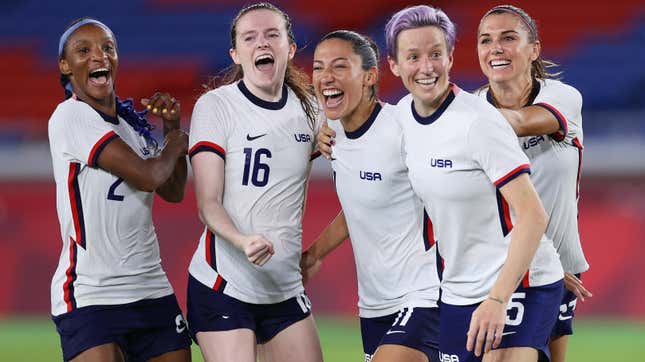U.S. Soccer Finally Decides Men and Women Players Deserve Equal Pay
The new collective bargaining agreement marks a historic day for women in sports.
EntertainmentEntertainment

The U.S. men’s and women’s soccer teams announced a collective bargaining agreement on Wednesday, capping the USWNT’s years-long fight to for equal pay. Under the new contracts, which run until 2028, both the men’s and women’s teams will be compensated equally—including pooling the vast majority of any future World Cup prize money.
“I am feeling extreme pride. And to be able to say finally, equal pay for equal work feels very, very good,” team captain Becky Sauerbrunn told Today. Still, she added, “It’s tough to get so, so excited about something that we really should have had all along.”
-

-

-

-

-

-

-

-

-

-

-

-

-

-

-

-

-

-

-

-

-

-

-

-

-

-

-

-

-

-

-

-

-

-

-

-

-

-

-

-








































